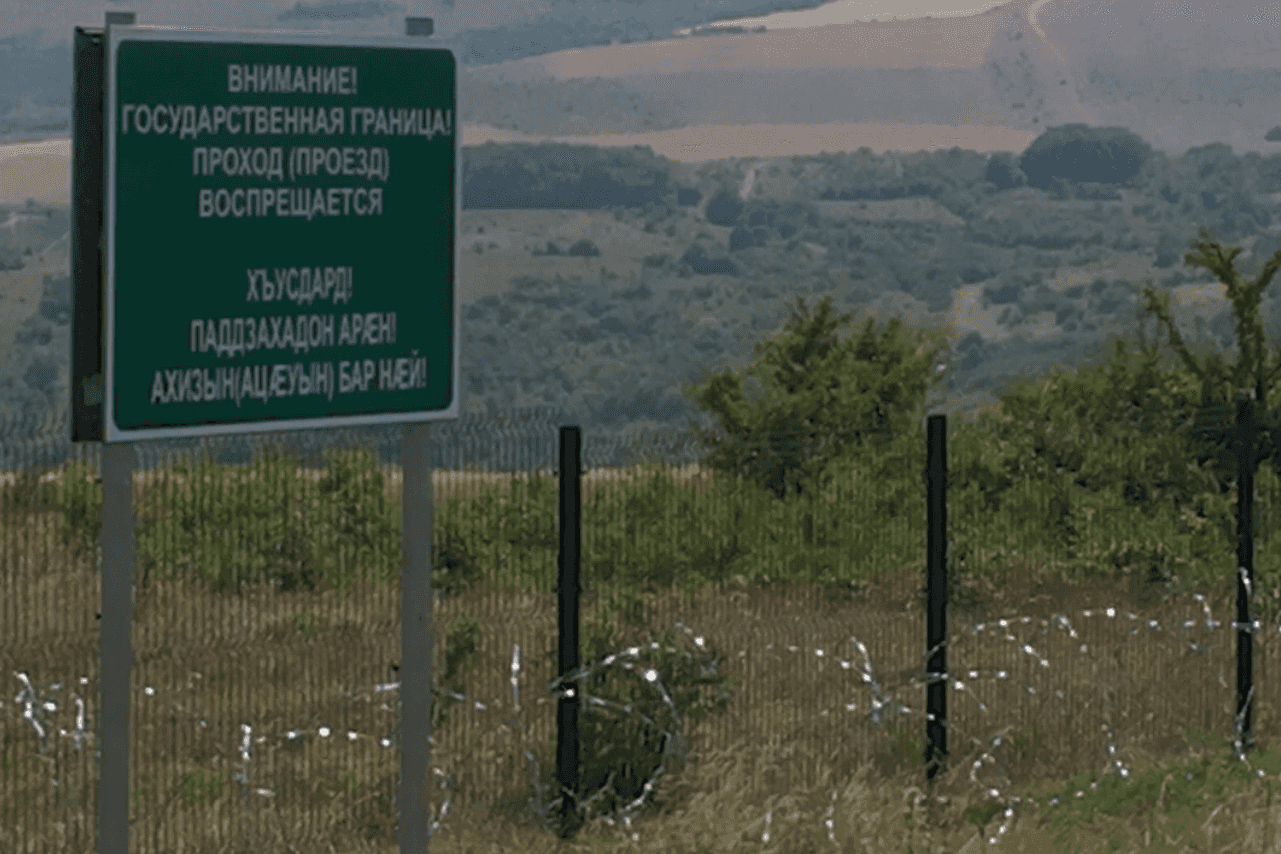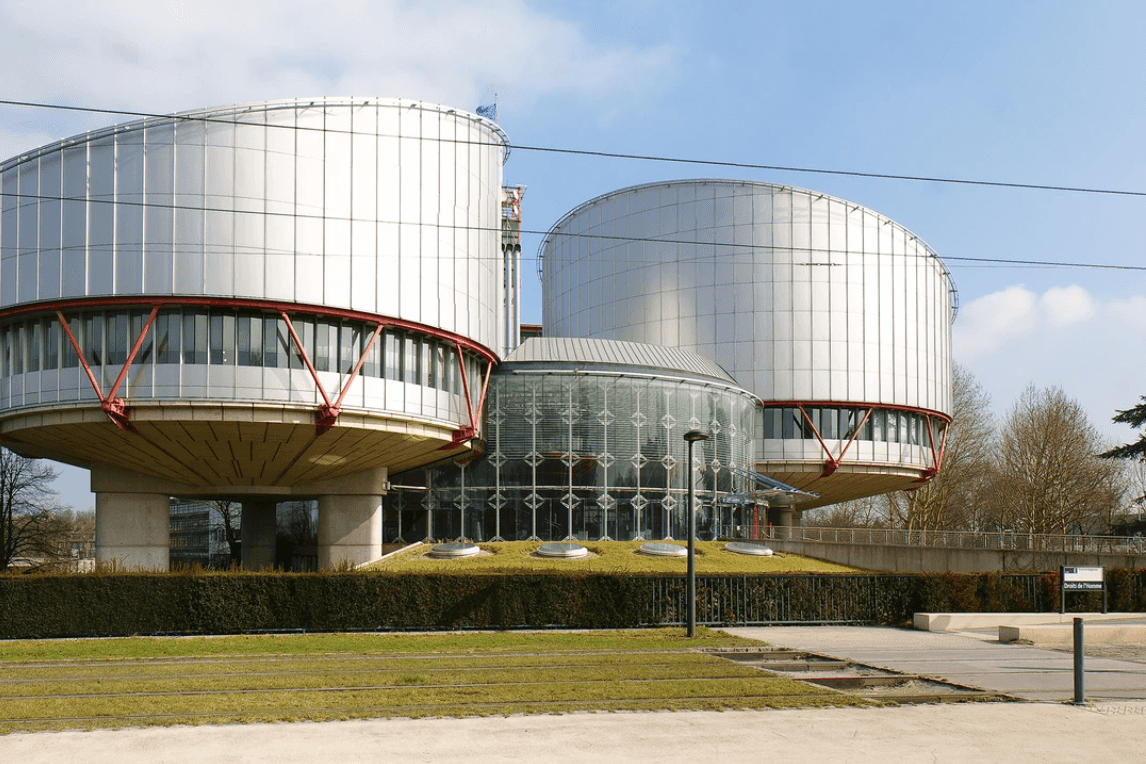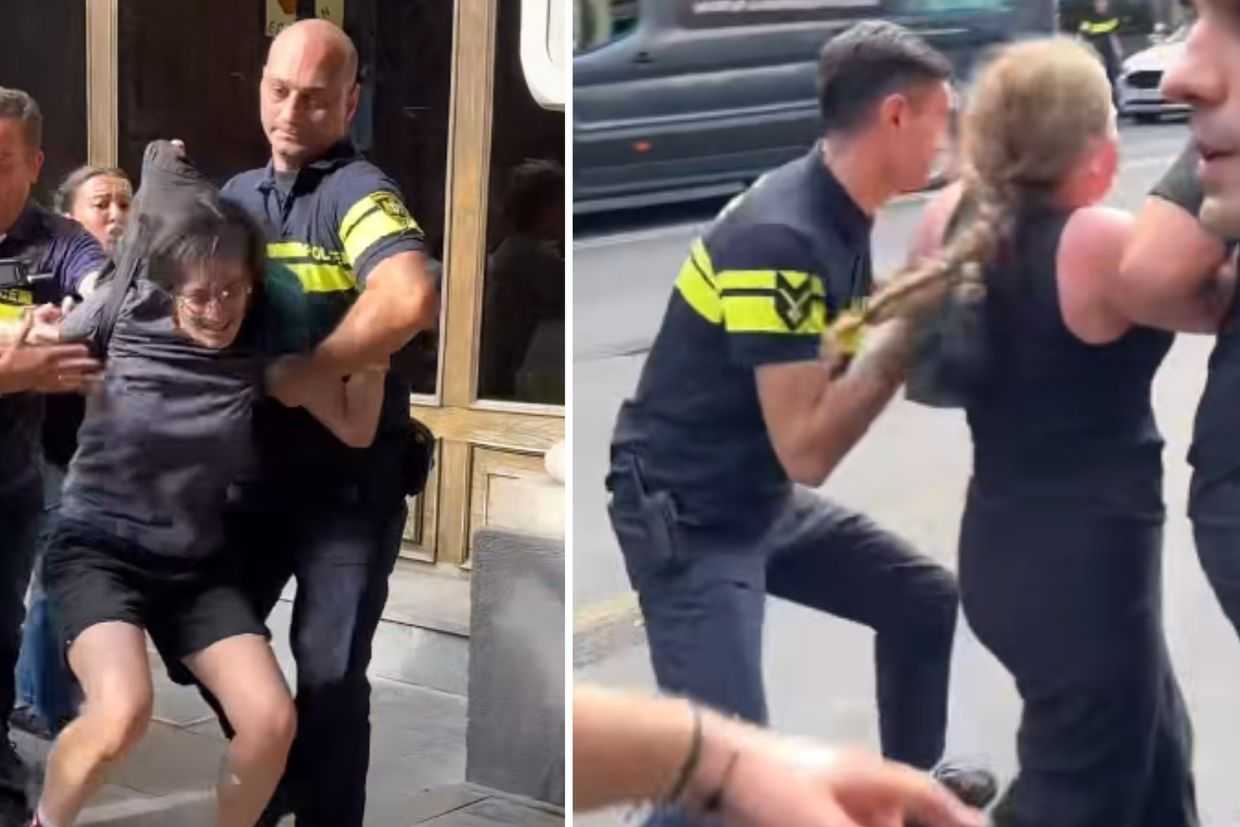Voice from the Georgian–South Ossetian conflict | ‘I still fear that the war may come back’

I T, the town of Znaur.
‘In 1988 I graduated from the Institute of Economics at the Faculty of Light Industry in Moscow. I returned and married into a family with a Georgian mother and Ossetian father. A slogan suggesting that Georgia was for Georgians and that Ossetians were aliens was being thrown around. These were popular phrases and slogans, which had already penetrated South Ossetia. There were Georgians in our districts, nationalists, and they would also gather.’
‘Those who had little kinship with Georgians entered into disputes with the Georgian nationalists. These disputes often broke down into fist fighting. There were lots of incidents, but back then the police were still around and they managed to intervene.’
‘I grew up in a family where my dad had very warm, friendly relations with Georgians. We used to host a lot of Georgians in our house, and I had the impression that Georgians were the same as Ossetians.
Afterwards, when I got married and moved to a mixed family, our Georgian relatives visited us very often. In other words, I had only seen amicable and warm relations [between Ossetians and Georgians].’
‘We were tipped off by a local Georgian’
‘Even when my husband said we had to leave and save the children, and that the Georgians were about to come and we had to save ourselves and our children, I still kept thinking that this was utterly impossible. I had a two-year-old son and I was seven months pregnant.’
‘But we were tipped off by a local Georgian… A local Georgian man came over and told my husband that they were coming and that he had to send his wife and child away just in case. I still pray for this man.’
‘Because when they came, they set up a position very close to our house. And the room where I and my child had lived was full of bullets. The windows were smashed, and the cot was filled with shell casings.’
‘The Road of Life’
‘I left for North Ossetia to stay with my uncle. I remember it was winter and we had a lot of snow that year. We took the Road of Life — the Zari motorway — walking for seven hours. A pregnant woman with a child in her hands.’
‘A relative picked me up in a car in Java and took us to Vladikavkaz. On the second or third day we had to go to the hospital because my child was sick. We spent two and a half months in hospital. Thank god, everything ended well.’
‘I became anxious for the health of my unborn child — just imagine: a heavy, two-year-old child in my arms while I am in the seventh month of pregnancy. You fall in a snowdrift, then stand up struggling only to fall in another one. Goodness…’
‘Georgians left quietly’
‘After the peacekeepers entered [our community] in July, I came back with my two children. It was deserted because only a few had stayed. Some returned, others chose to stay in North Ossetia. Our Georgian neighbours also left.’
‘But what was most interesting is that Georgian families who lived nearby had left quietly just before the Georgians came in. It turned out later that they had been tipped off and told to leave a few days before, and that after the district was taken, they could come back and resume living.’
‘I remember Georgians, including our acquaintances, leaving quietly for Georgia. They would say they were sick and wanted to visit a doctor, some were talking to their relatives, some to their children. In other words, they would name various reasons. That’s how quietly they were leaving behind their own houses, the district.’
‘Our Georgian neighbours never returned, they were afraid that what they had planned never came to life thanks to our guys who, with sticks in their hands, protected their land. I think this is the greatest heroism of our guys, our children.’
‘You never knew’
‘At dawn they started shooting from Alazani. Even my child who was two and a half at that time was sitting at the window all the time and counting. It eventually became a habit.’
‘Fear became a part of everyday life. There was no electricity, food was scarce, and we were struggling to survive. Probably because it was a village, we would grow things in the vegetable gardens, keep our cattle. It was hard, very hard, but what was worst was the lack of electricity.’
‘There was also no gas and we had to boil and cook things for the children all the time. We would cook on a stove using firewood, but it was also hard to get firewood — it was dangerous to go to the woods: you never knew.’
‘It’s all about politics’
‘Eighteen years of life in limbo is extremely difficult. I believed that sooner or later this would end and hoped that our voices would be heard. We were waiting for when our torture would end and the truth would reign and we would start living normally again. That’s what happened thanks to Russia, and at that time thanks to Russian peacekeepers, who had made our lives safer and more secure.’
‘I believe that Georgian farmers and village people were also victims of this conflict. Because it’s all about politics. It was for the benefit of the few to poison the brotherly nations — Georgians and Ossetians. Because I knew for sure that my Georgian relatives would never go to war against me.’
‘Up to this very day, when I contact them, they have tears in their eyes. They did not want this either. They were also tangled up in this dirty, political game.’
‘The conflict was being resolved peacefully’
‘And then it seemed that everything quietly faded away and it was clam again. Things got sorted as years passed. By 2004, there was a marketplace on the border frequented by Georgians. In other words, there was a market where Ossetians and Georgians traded together.’
‘This was a step forward towards confidence building between the two nations. And one would think that the conflict was being resolved peacefully. There was hope that everything would soon come around and fall into place.’
‘However, with Saakashvili ascending to power in Georgia — all the efforts ever made by both parties were pushed backwards. I think he just put a big end to all these efforts.’
‘In 2004 it was relatively calm in our district compared to the city. But in general, people were tense and intimidated: there were shootings again, deaths again, and everything seemed to be coming back. Surely, it was very difficult.’
‘How did you let this nightmare happen again?’
But for what happened in 2008 — I cannot exonerate the Georgians. Not even one percent. In the 1990s they were affected even more because they lost houses, property, everything they had worked for. The Georgians suffered even more than we did. We at least would receive some kind of assistance, but them…’
‘So I tell them: “how is it that you, having gone through all this suffering and horror, let this nightmare happen again in 2008?!” They said no one asked for their opinion and that they had been deceived, thus making them victims of 2008. That’s what ordinary people say.’
‘It was 20:00 [on 7 August]. I saw a bus full of people just driving in [to Vladikavkaz]. I see that all of them are my neighbours. They said they had left because it was unsafe to stay because Georgians had started a war again.’
‘And it was a miracle that they managed to bring my child. The child was very scared and it took us a lot of visits to a doctor — a psychologist — for her to recover, as she would wake up with nightmares for a long time.’
‘Eighteen years in limbo’
‘I got back five days after the war ended, even though my husband would not let me go back as he was staying here, in the district. I arrived. And of course it was horrifying what I had seen on my way. As we learned afterwards, they had planned to turn the city into a “empty field”.’
‘Of course it was dreadful. We had lived 18 years in limbo, expecting the resolution to come every day. When will my children, my relatives, my people breathe again? The best of my years were wasted in that limbo, in that fear. And today I feel bitter and angry that there is nobody that I can claim these years back from.’
‘And people around me feel the same. They also lost years. We are talking about 20 years! This is a whole generation! And human life is very brief. I would have done so much in these 20 years. But I have fallen behind materially, and morally and spiritually. Raising three children in a destroyed town, in a destroyed republic, is not easy at all.’
‘Let’s remember our deep and strong kinship bonds’
‘I personally comforted myself with thoughts that finally peace came. It’s no surprise that it badly affected my health, but my children managed to find their own way. And all of this, of course, happened because of the great Russia.’
‘I still fear that war may come back. When you read some loud, unthoughtful statements made by some of the Georgian mock politicians, who want the war to come back, everything comes back, all the memories come back to life and I feel dreadful.’
‘I am hopeful that ordinary Georgian people will never allow the war to repeat itself, for everything that happened between us to come back again. I call on both Georgians and Ossetians to nourish more peacekeepers among us so that we all wish for peace.’
‘Let’s remember, both Ossetians and Georgians, our deep and strong kinship bonds. And just for the sake of these bonds, for the sake of the future of our children, we must all think of and wish for peace.’
[Read from the other side of the conflict: L Ch, 60, Ergneti village, Gori Municipality — ‘A conflict started and kindled by bad politicians’]
The is an edited version of a story recorded by Irina Kelekhsayeva for George Mason University, with funding from USAID, and the UK Conflict, Stability, and Security Fund. All place names and terminology used are the words of the authors alone, and may not necessarily reflect the views of OC Media or George Mason University.









